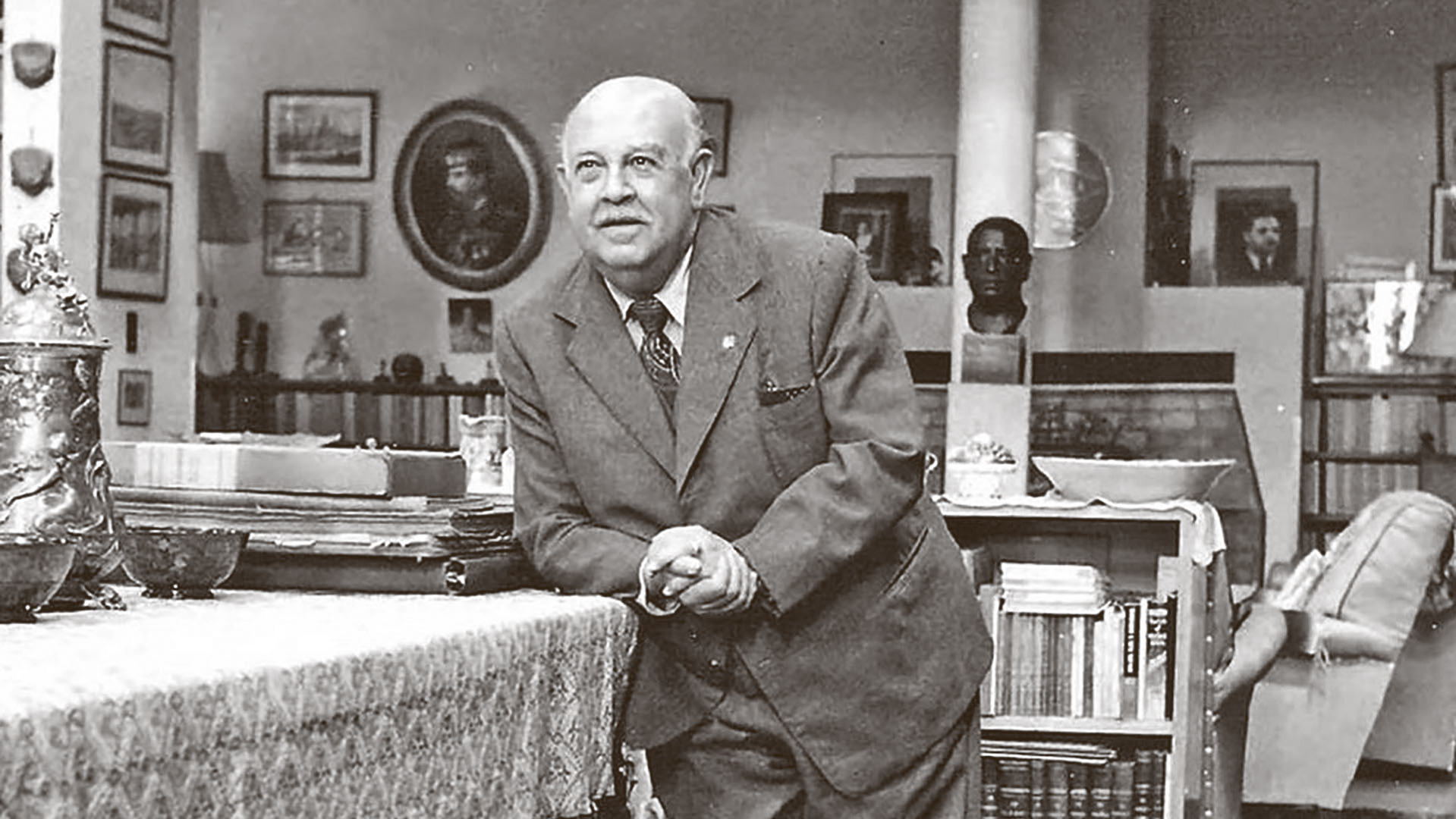Alfonso Reyes.Escolt the Devil and Troach from it

Edition of E-Primatur published by the first between us the Mexican writer and diplomat that Borges considered “the best proser of the Spanish language of any time”. The book brings together all the tales of Reyes, which are harmoniously grounded in an atmosphere where the fantastic, fun, sensuality and mystery reigns.
Born in Monterrey, the son of an important general who was tragically dying in a coup against President Medero, and an aristocrat, Reyes founded with other Mexican writers the La Juventud, the Spain House in his country, the French Institute of Latin America and created the renowned college of Mexico. With his father’s death, he had to leave his country early, and traveled to France where he became minister and secretary of the Mexico delegation, then moved to Spain where he lived exiled for 10 years. Then he worked as a journalist, collaborating with several magazines, being a colleague of Ramón Menéndez Pidal and Ortega y Gasset, and continued to publish books. But he was in the position of Ambassador in Argentina, after having passed before Brazil, who met and became close friends with other celebrated writers such as Silvina Ocampo, Bioy Casares, Solar Xul, Octavio Paz, Paul Groussac and Borges. With Borges had had dinner every Sunday at the Mexico Embassy in Buenos Aires, and even published him the book « Cuadernos de Plata ». They have become so close that Héctor Palacio considers that in Reyes’s work « immediately perceives a bond with Borges’s fantastic fictional style. » Palacio draws attention to the fact that Borges’s “Aleph”, the protagonist to be Reyes, and in “The Dinner” the protagonist being Borges. Undoubtedly, from all these fascinating narratives gathered here, “dinner” is one of the best known, as is the tale that names the book. Both are considered crucial and striking for the consolidation of fantastic literature in Mexico. But all others are equally deserving of the maximum attention.
“The dinner” was first published in 1912 when Reyes was still a student. Alfonso is invited to dinner by two unknown women. When he arrives at dinner does not recognize Amália, the woman who opens the door, but who treats him lovingly by name. Nor does he know Dona Magdalena, the older woman waiting for him in the room. There is an endless details of strange details that arrest the narrator’s attention, as well as that of the reader who is also intrigued with everything. At every moment, Alfonso is analyzing in hand the divisions of the house and garden. It is a garden that looks a bit scary and artificial. In this garden there will be something strange. Women begin to talk about flowers that boil and kiss, and stems that fuck like snakes to the neck. Half lost, the protagonist hallucinates to the sound of the voice of those women. The female voices are confused with their delirium. When he gives himself, Alfonso notices that the two women, however, began to float around them and have no body. Just heads. Square with everything, he tries to understand the reason for the invitation to dinner, because at one point they begin to ignore talking about things he is unaware, as if they were not in his presence. They speak of a young and dazzling young captain who was blinded during an explosion. At one point, they end up taking him in his arms into the house and show him a portrait. This is where he realizes that the figure of the portrait is himself, and that the signature and letter of the dedication to appear at the bottom of the image was the same as the anonymous invitation he had received for dinner. Terrized, and under their godly gaze, untie again running through the streets and alleys where he had passed until he returned to his house. « On my head there were leaves; on my buttonhole, a modest flower I didn’t cut. »
At one point, the narrative imposes a hallucinating pace of descriptions and sensations, and the reader feels as strange as the protagonist. Everything leaves you in a start. The tone, the unpredictability, the fantasy, the cadence, the ecstasy. Aside from this text, “the hand of commander Aranda” is another excellent example to prove the cohesion of his Thematic Tales unit. Written in 1949, that is, 37 years after “dinner”, we have the story of a commander who lost his right hand in combat. At one point the hand begins to come to life, to fool the crooked and right, to reveal diabolical. « It turns out that the hand, as soon as he led himself, became ungovernable, temperamental. We can say that it was at this time that he » put his nails out. « It was going and came to her. He was not obeyed to anyone. (…) The commander watched her and suffered in silence.
This hand caused so many disorders that the family began to crumble. The commander was increasingly depressed, the increasingly angry children and the woman very frightened and with the craze of persecution. There was no employee who wanted to work for them, and all friends and relatives deserted. Police suspected that Aranda was the perpetrator of all thefts in the city. No one believed it was the hand to make theft, which spread like a day -to -day plague. Until, strangely, unbeknownst to Aranda, her hand calmed and radically changed her behavior. “One night, however, the hand pushed the library door and plunged into reading. And he gave with a tale of Maupassant over a cut hand that ends up the enemy. And he gave with a beautiful nerval fantasy, in which a enchanted hand runs the world making priments and harm. Alphabet? The result is sad and serene. Carefully put between campaign awards and the crosses of military constancy and, disgusting and sorry, committed suicide in his own way, he was killed. ” After this withdrawal peace reigned again in the family of Commander Aranda. Everything was as it was as it was. « Attention, firm! In your places! Clarim, tap the dawn of victory! »
The vast majority of the characters of these tales move on the dreams and fantasy plan, and want the earthly world as the fanciful, even with its traumas and dilemmas, it is at the end and to the corporal full of mildness, even though endowed with comic and tractist fatalism. It is as if by the anecdotal Reyes tried to build the most fun and light of all possible worlds. It is not that there are no episodes of disputes or strong disagreements, such as Dom Benjamin booksellers and their Vicente assistant, but Reyes narrates them to mobilize all evil intentions, making evil in something unnecessary, ridiculous and highly comic.
The description of these characters is an example that it is never the evil or the dark to come out as protagonists of a story of yours. Evil, the dark, never dominate a scene. Before they end up with light on all finals. It is therefore quite graceful how the author tries to untie the knots of so many problems of domestic life, human nature, his ambiguity, but in fact, pettiness and mediocrity are always in a debt situation towards pleasure and party.







